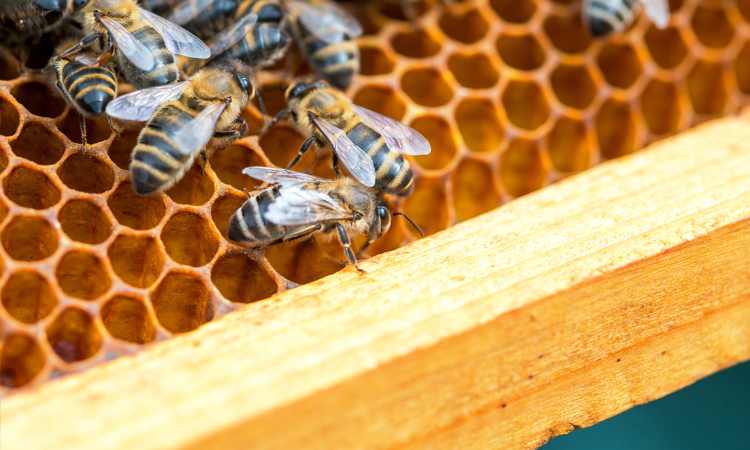Is backyard beekeeping safe? That’s a question we get a lot, and it’s understandable. After all, bees can sting, and some people are allergic to their venom. But the reality is that bee stings are actually quite rare, and with proper precautions, almost anyone can safely enjoy the benefits of keeping bees in their yard. So if you’re thinking about starting a beehive of your own, read on to learn more about the risks and how to stay safe while enjoying your new hobby.
Backyard beekeeping and its potential benefits
Backyard beekeeping is a fascinating and relatively easy way to help the environment while learning an engaging new skill. By keeping bees in your own backyard, you can benefit both your garden and the honeybee population.
Despite the risk of being stung, beekeeping is not as intimidating as it may sound. With proper gear, practice, and patience, beekeepers can enjoy a complex backyard hobby with rewards that go beyond a jar of honey. In addition to providing pollination to plants, beekeeping also allows you to explore the workings of bee society while admiring their industrious artistry.
Safety concerns associated with keeping bees in close proximity to humans
Beekeeping is a pastime enjoyed by many, however it is important to remember that it comes with potential safety concerns. Honey bees are not known for being particularly aggressive, however their nature means they can become agitated and may sting when provoked.
As beekeepers tend to be around their hives often, there is an increased risk of them being stung. This is generally something beekeepers are used to and prepared for, as long as safety protocols are followed and the beekeeper wears protective clothing.
It must also be remembered that beekeeping can sometimes attract other types of animals that may carry disease such as skunks and rodents, so caution should always be taken when beekeepers come into contact with these types of creatures. Taking these steps will help ensure safe beekeeping practices for both the beekeepers and their hives.
Tips for safely keeping bees in your backyard
Beekeeping is a popular hobby for those who appreciate the beauty of nature and enjoy the added bonus of harvesting bee products such as honey and wax. However, keeping honey bees in your backyard comes with risks, primarily the risk of being stung.
To ensure beekeeping safety, start by familiarizing yourself with bee behaviors and research the bee species you plan on keeping. Additionally, it’s important to provide them with proper housing, establish bee flight paths away from potential foot traffic, and outfit yourself with protective bee suits and bee-handling tools.
Following these tips should lessen your risk of bee stings as you learn more about beekeeping and work to maintain a safe environment for both yourself and the bees.
What to do if you’re stung by a bee
If you’ve ever been stung by a bee, you know the discomfort and burning sensation it can cause. Whether you’re allergic to bee stings or not, it’s important to be aware of what steps to take if you find yourself in this unfortunate situation.
The first thing that needs to be done is to remove the stinger as quickly as possible. Use tweezers or a credit card and scrape away the venom sac attached to the end of it. After ensuring the stinger is removed, wash the affected area with soap and water and then apply an ice pack or cold compress for 10-15 minutes.
To reduce swelling, use antihistamines such as Benadryl or use hydrocortisone cream until symptoms subside. It is also helpful to elevate the area where you were stung if possible.
If you are allergic to bees, seek medical help immediately if you are stung.

Some of the ways you can enjoy honey from your own beehive
Beekeeping is a fun activity and an educational experience. But safety must always come first, so if you’re harvesting honey from your own beehive and it will inevitably require you to open the hive, make sure you are wearing beekeeping-approved protective gear.
Although anyone can harvest honey, beekeepers can also enjoy their beehives in other ways: observing bee behavior, collecting bee pollen and propolis, or simply entertaining friends with a bee fashion show.
Also, don’t forget that even beekeepers get stung once in a while so be prepared for any minor mishaps with bee sting remedy kits close at hand.
Do your own research before deciding whether backyard beekeeping is right for you
Beekeeping offers many wonderful therapeutic and environmental benefits, so it’s no wonder why people are increasingly interested in doing it. However, before anyone decides to take the plunge and become a beekeeper at home, they need to do their homework. That means researching the basics of beekeeping, from the risks associated with bee stings to the safety precautions that need to be taken.
While beekeeping can be incredibly rewarding for some people, it definitely isn’t for everyone; by researching beekeeping thoroughly beforehand, individuals can make an educated decision as to whether beekeeping is right for them or if they would be better served admiring these magnificent creatures from a distance.

Wrapping Up
In conclusion, backyard beekeeping is an activity that brings many rewards to those who partake in it. With the right resources, knowledge and preparation, backyard beekeeping can be a safe and fun hobby for anyone looking to become more involved in nature.
By following the safety tips outlined in this article, backyard beekeepers can enjoy their bees without risk of harm or danger. Beekeeping is a great way to create a healthy environment for both your garden and the bees, as well as help protect wild bee populations.

Hi – I’m Erika, the head writer and expert beekeeper here at Just Beekeeping! I am a backyard beekeeper and proud member of the American Beekeeping Federation (ABF) and the Central Indiana Beekeepers Association. In addition, I am an educator with advanced degrees from UC-Berkeley and the University of Southern California (USC). I use my expertise to help others learn about beekeeping, and I am an advocate for all subjects bee related!